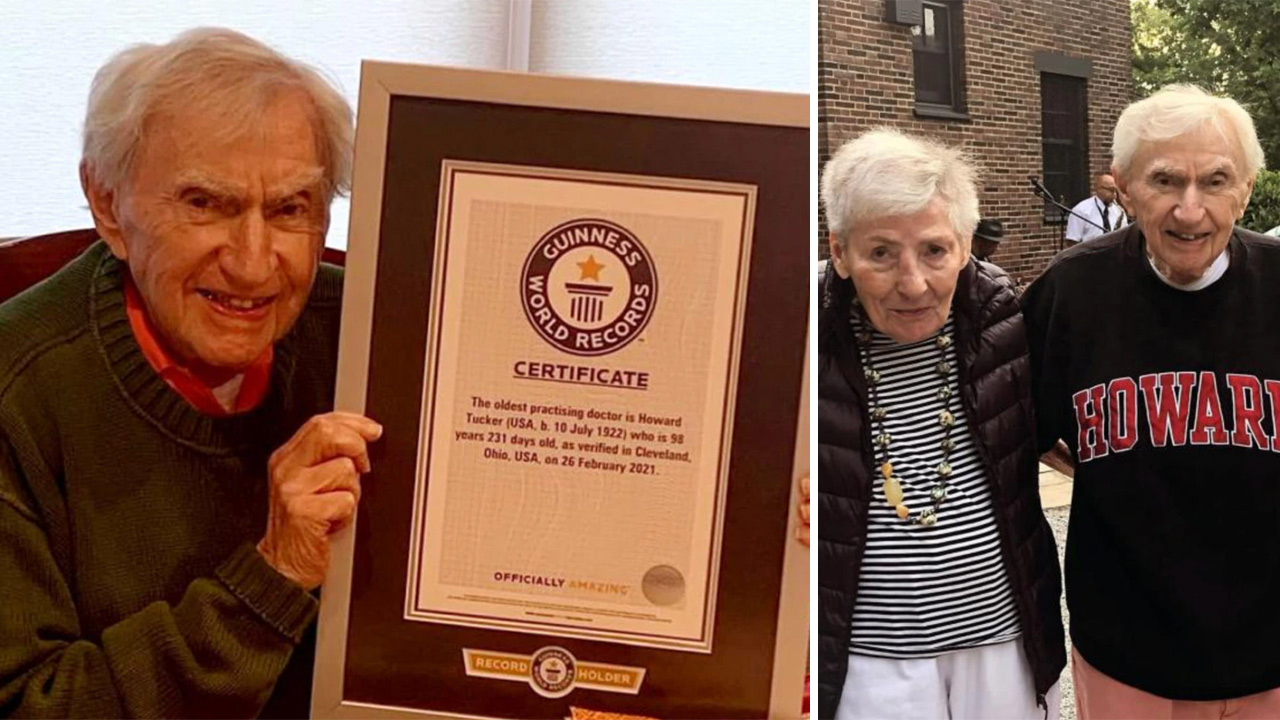Caring
World's oldest practicing doctor shares his secrets to a long life

While most people slow down with age, Dr Howard Tucker has spent more than a century proving that passion and purpose are the best medicine.
At 102 years old, the American neurologist has lived a life so extraordinary it earned him a Guinness World Record as the oldest practicing doctor – an honour he received just before turning 99. Though he officially hung up his white coat at 100, Tucker remains as active and engaged as ever.
Today, he lectures future physicians at Case Western Reserve University in Cleveland, Ohio, and consults on medico-legal cases – work made possible by a law degree he earned at 67. His message? Retirement is not a requirement.
“Retirement, I think, is the enemy of longevity,” Dr Tucker recently told Al Roker on NBC’s Today. “You have to have some purpose in life and get up in the morning and know what you’re about.”
Even after the hospital where he worked shut its doors in 2022, ending his medical practice at 100, Tucker hasn’t ruled out returning to clinical work. “If it wasn’t for the closure, I’d absolutely still be seeing patients,” he told People. “Nobody wants me at my age – but I’ll keep trying.”
His enthusiasm for life has captured the public imagination, especially through What’s Next, a documentary about his life produced by his grandson. The film has gone viral on TikTok, turning the centenarian into an unexpected social media sensation.
Dr Tucker credits his longevity not just to good genes – his parents lived to 84 and 96 – but to lifestyle choices. “Heredity and family history of longevity is a healthy start,” he wrote in his Guinness World Record submission. “However, it must be supported by moderation of nutrition, alcohol and happiness.”
His daily routine reflects that philosophy. He snowshoes in the winter, walks on the treadmill for at least four kilometres a day, and eats a mostly clean diet – fruit and cereal in the morning, fish and vegetables at night. Lunch is often skipped to maintain mental clarity. Dessert, however, is a staple – typically fruit or ice-cream, enjoyed with his wife of over 70 years.
And while he rarely drinks, he allows himself the occasional martini. One thing he’s always avoided: cigarettes.
Dr Tucker also says its important to keep the brain stimulated. “If they retire from their work, they should at least do something as a hobby,” he told Today. “You need a stimulus for the brain daily.”
Science backs him up. Research shows that ongoing learning, social connection, and a sense of purpose contribute to mental acuity and longevity. Tucker’s life is a blueprint for all three. He remains close to his four children and 10 grandchildren and is an avid sports fan.
Despite a fall in his late 80s that ended his skiing days with a broken neck, Tucker hasn’t let injury slow him down. Instead, he’s adapted, always finding new ways to stay active.
With his 103rd birthday on the horizon in July, Dr Tucker says he isn’t concerned about the end. “I never think of death,” he said. “To be alive is to know that you’re going to die because life is a fatal disease. And so I live it.”
For a man who’s devoted his life to healing others, Dr Howard Tucker’s greatest lesson might be how to truly live.
Images: Instagram


